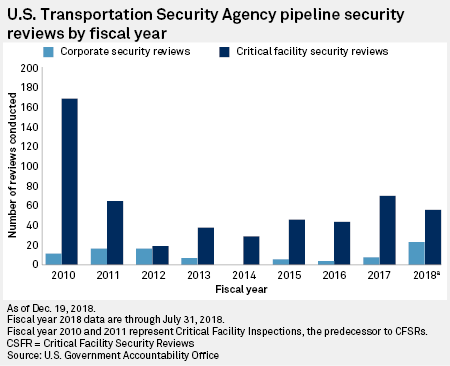Introduction to Colonial Cyberattack and its impact on national security
The recent Colonial Cyberattack has demonstrated the urgent need for enhanced federal pipeline oversight and reform to safeguard our nation’s critical infrastructure. The attack, which occurred in May 2021, resulted in the shutdown of the Colonial Pipeline, a major fuel pipeline system that supplies gasoline, diesel, and jet fuel to the East Coast of the United States. This cyberattack not only disrupted fuel supplies, causing panic buying and price hikes, but it also exposed the vulnerabilities in our pipeline infrastructure and raised concerns about national security.
Overview of the current state of federal pipeline oversight
Currently, the oversight of our nation’s pipeline infrastructure is divided among multiple federal agencies, including the Department of Transportation’s Pipeline and Hazardous Materials Safety Administration (PHMSA) and the Department of Homeland Security’s Cybersecurity and Infrastructure Security Agency (CISA). However, the fragmented approach to pipeline oversight has resulted in gaps in coordination and communication, leaving our critical infrastructure susceptible to cyberattacks.
Furthermore, the existing regulatory framework for pipeline security is outdated and does not adequately address the evolving cyber threats faced by the industry. The lack of comprehensive regulations and standards leaves pipeline operators without clear guidance on how to protect their systems from cyber threats, increasing the risk of successful attacks.
Understanding the vulnerabilities in the pipeline infrastructure
The pipeline infrastructure in the United States spans thousands of miles and consists of interconnected networks that transport oil, natural gas, and other hazardous materials. While these pipelines are essential for our daily lives and the functioning of our economy, they are also vulnerable to cyber threats.
One of the key vulnerabilities in the pipeline infrastructure is the reliance on outdated operational technology (OT) systems. Many pipeline operators still use legacy systems that lack modern cybersecurity features, making them easy targets for hackers. Additionally, the increasing connectivity of these systems to the internet and other networks creates more entry points for cyber attackers.
Another vulnerability lies in the supply chain of pipeline equipment and software. The use of third-party vendors and contractors introduces potential weaknesses in the form of counterfeit or tampered components, as well as vulnerabilities in the software used to control and monitor pipeline operations.
The need for reform in federal pipeline oversight
Given the evolving cyber threats and the vulnerabilities in our pipeline infrastructure, there is an urgent need for reform in federal pipeline oversight. A comprehensive and coordinated approach is required to address the gaps in regulation, improve cybersecurity standards, and enhance the resilience of our critical infrastructure.
First and foremost, there is a need for a centralized authority responsible for overseeing the security of our nation’s pipelines. This authority should have the resources and expertise to develop and enforce cybersecurity regulations, conduct regular audits and assessments, and coordinate with other federal agencies to ensure effective response and recovery in the event of a cyberattack.
Additionally, the regulatory framework needs to be updated to incorporate modern cybersecurity practices and technologies. This includes implementing stronger authentication and access controls, conducting regular vulnerability assessments and penetration testing, and establishing incident response plans to mitigate the impact of cyber incidents.
The role of cybersecurity in protecting critical infrastructure
Cybersecurity plays a vital role in protecting our critical infrastructure, including pipelines. It involves the implementation of measures to prevent, detect, and respond to cyber threats, ensuring the integrity, availability, and confidentiality of critical systems and data.
One of the key aspects of pipeline cybersecurity is network segmentation. By dividing the pipeline network into isolated segments, the impact of a cyberattack can be contained, preventing the attacker from gaining access to the entire system. This segmentation also allows for more granular control and monitoring of network traffic, making it easier to detect and respond to suspicious activities.
Encryption is another critical component of pipeline cybersecurity. By encrypting data both at rest and in transit, pipeline operators can protect sensitive information from unauthorized access. Strong encryption algorithms and key management practices should be implemented to ensure the confidentiality and integrity of data.
Proposed solutions for enhancing federal pipeline oversight and reform
To enhance federal pipeline oversight and reform, several key solutions need to be considered:
Establish a centralized authority: Create a dedicated federal agency responsible for overseeing the security of our nation’s pipelines, ensuring coordination and collaboration among various stakeholders.
Update regulations and standards: Develop and enforce robust cybersecurity regulations and standards that reflect the current threat landscape and technological advancements, including regular assessments and audits.
Promote information sharing and collaboration: Encourage collaboration between pipeline operators, federal agencies, and cybersecurity experts to share threat intelligence, best practices, and lessons learned.
Invest in research and development: Allocate resources for research and development in pipeline cybersecurity to stay ahead of emerging threats and develop innovative solutions.
The importance of public-private partnerships in securing the pipeline infrastructure
Securing our pipeline infrastructure requires a collaborative effort between the public and private sectors. Public-private partnerships play a crucial role in sharing expertise, resources, and information to enhance the security and resilience of our critical infrastructure.
Pipeline operators bring industry-specific knowledge and experience, while the government provides regulatory oversight and access to threat intelligence. By working together, they can develop effective cybersecurity strategies, implement best practices, and strengthen the overall security posture of our pipeline infrastructure.
The potential economic and national security implications of a cyberattack on pipelines
A successful cyberattack on our pipeline infrastructure can have severe economic and national security implications. Disruptions in fuel supplies can lead to fuel shortages, price spikes, and economic instability. This can impact various sectors, including transportation, manufacturing, and agriculture, and ultimately affect the daily lives of the American people.
Furthermore, pipelines are critical components of our energy infrastructure, and any disruption can have implications for national security. The dependency on foreign oil imports may increase, compromising our energy independence. In addition, cyberattacks on pipelines can be used as a tool by adversaries to undermine our national security, disrupt critical services, and sow chaos and fear among the population.
Case studies of previous pipeline cyberattacks and their consequences
Several case studies highlight the potential consequences of pipeline cyberattacks. In 2012, the Shamoon malware targeted the Saudi Aramco oil company, wiping out data on thousands of computers and disrupting operations. This attack resulted in significant financial losses and damaged the company’s reputation.
In 2017, the Triton malware targeted a safety system at a petrochemical plant in Saudi Arabia. The attack was designed to cause physical damage and could have resulted in a catastrophic industrial accident if not detected and mitigated in time.
These incidents demonstrate the real-world impact of pipeline cyberattacks and underscore the need for immediate action to enhance federal pipeline oversight and reform.
Conclusion: Urgency for immediate action in federal pipeline oversight and reform
The Colonial Cyberattack serves as a wake-up call for the urgent need to strengthen federal pipeline oversight and reform. The vulnerabilities in our pipeline infrastructure and the evolving cyber threats demand a comprehensive and coordinated approach to secure our critical infrastructure.
Enhancing federal pipeline oversight requires the establishment of a centralized authority, updating regulations and standards, promoting information sharing and collaboration, and investing in research and development. Public-private partnerships are crucial in securing our pipeline infrastructure, and the potential economic and national security implications of a cyberattack on pipelines highlight the need for immediate action.
It is imperative that we act swiftly to protect our critical infrastructure, ensure the reliable supply of energy, and safeguard our national security. By taking proactive measures and implementing robust cybersecurity practices, we can mitigate the risks and build a resilient pipeline infrastructure that can withstand the evolving cyber threats of the future.
Call to Action (CTA)
To learn more about the importance of federal pipeline oversight and reform, and how you can contribute to securing our critical infrastructure, visit our website and join the conversation. Together, we can protect our nation’s pipelines and ensure the safety and prosperity of our country.


